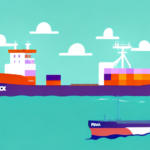Understanding Carrier Services: A Comprehensive Guide
In the realm of shipping and logistics, the term “carrier service” is frequently encountered. But what does it truly encompass? Essentially, a carrier service refers to companies that facilitate the transportation of goods and products for businesses or individuals via air, land, or sea. This guide delves into the intricacies of carrier services, exploring their roles, the variety of services available, and the factors to consider when selecting the optimal carrier for your business needs.
Benefits of Utilizing Carrier Services
Expertise and Infrastructure
Carrier services bring specialized knowledge and robust infrastructure to handle large volumes of goods efficiently. Their expertise ensures that shipments are managed effectively, minimizing the risk of delays and damages.
Advanced Tracking and Real-Time Updates
Modern carrier services offer sophisticated tracking systems that provide real-time updates on shipment status. This transparency allows businesses to monitor their goods throughout the transportation process, enhancing reliability and customer satisfaction.
Cost Efficiency and Rate Negotiation
By leveraging their network and volume of shipments, carrier services can negotiate favorable shipping rates, passing on the savings to their clients. This cost efficiency is particularly beneficial for businesses with high shipping volumes.
Additional Value-Added Services
Beyond transportation, carrier services often provide a suite of supplementary services such as insurance, packaging, and customs clearance. These services streamline the logistics process, allowing businesses to focus on their core operations.
Types of Carrier Services
Air Freight
Air freight offers rapid delivery, making it ideal for time-sensitive shipments. According to the International Air Transport Association (IATA), air cargo accounts for approximately 35% of global trade by value despite representing a smaller volume.
- Pros: Fast delivery times, global reach.
- Cons: Higher costs compared to other modes.
Ocean Freight
Ocean freight is a cost-effective solution for transporting large quantities of goods over long distances. It is particularly advantageous for heavy or bulky items.
- Pros: Economical for large shipments, suitable for non-urgent deliveries.
- Cons: Slower transit times, susceptible to delays due to weather conditions.
Full Truckload (FTL)
FTL services are ideal for transporting large shipments that require the entire trailer, ensuring faster and more reliable delivery.
- Pros: Dedicated space, reduced handling, faster transit.
- Cons: Higher costs, less flexibility for smaller shipments.
Less Than Truckload (LTL)
LTL services are cost-effective for smaller shipments that do not require a full trailer. Multiple shipments from different customers are consolidated into a single truck.
- Pros: Lower costs, flexible for various shipment sizes.
- Cons: Longer transit times, potential for increased handling and delays.
Selecting the Right Carrier Service for Your Business
Assessing Your Shipping Needs
Understanding your specific shipping requirements is crucial. Consider factors such as the size and weight of your shipments, delivery timelines, and budget constraints.
Evaluating Carrier Reliability and Performance
Research carrier performance metrics, including on-time delivery rates and customer reviews. Reliable carriers with a proven track record can significantly impact your supply chain efficiency.
Considering Environmental Impact
Sustainability is increasingly important in logistics. Opt for carriers that prioritize eco-friendly practices, such as using fuel-efficient vehicles or offering carbon offset options. According to the Transport & Environment, the logistics sector accounts for about 7% of global CO2 emissions.
Cost Analysis and Budgeting
Compare pricing structures across different carriers. Be mindful of hidden fees and ensure that the cost aligns with your budget while meeting your service quality expectations.
Trends and Innovations in the Carrier Service Industry
Last-Mile Delivery Enhancements
The surge in e-commerce has amplified the importance of last-mile delivery. Innovations such as autonomous vehicles and drone deliveries are emerging to meet the growing demand for faster and more efficient delivery options.
Personalized Delivery Solutions
Consumers now expect flexible delivery options, including same-day delivery, alternative pickup locations, and customizable delivery schedules. Carrier services are adapting to these demands by offering more personalized solutions.
Integration of Technology
Advancements in technology, such as AI and IoT, are transforming carrier services. These technologies enhance real-time tracking, predictive analytics for demand forecasting, and automated warehouse management.
Best Practices for Working with Carrier Service Providers
Maintain Clear and Consistent Communication
Establishing open lines of communication with your carrier ensures that any issues are promptly addressed and that both parties are aligned on expectations.
Regular Performance Reviews
Periodically assess carrier performance using key performance indicators (KPIs) such as delivery times, accuracy, and customer satisfaction. This evaluative process helps in identifying areas for improvement.
Foster Strong Relationships
Building a positive relationship with your carrier can lead to better service levels, priority during peak times, and more favorable negotiation terms.
Future Outlook for the Carrier Service Industry
Emphasis on Sustainability
The push for greener logistics is set to intensify, with carrier services increasingly adopting sustainable practices to reduce their carbon footprint and meet regulatory requirements.
Adoption of Advanced Technologies
Technological innovations will continue to shape the industry, with greater integration of blockchain for transparency, augmented reality for warehouse management, and enhanced cybersecurity measures to protect data integrity.
Globalization and Market Expansion
As global trade continues to expand, carrier services will play a crucial role in connecting markets, overcoming logistical challenges, and facilitating seamless international transactions.
By gaining a thorough understanding of carrier services, businesses can make informed decisions that enhance their supply chain efficiency, reduce costs, and ensure the timely delivery of products. Whether utilizing air, land, or sea transportation, selecting the right carrier service is pivotal to the success of your logistics operations.








